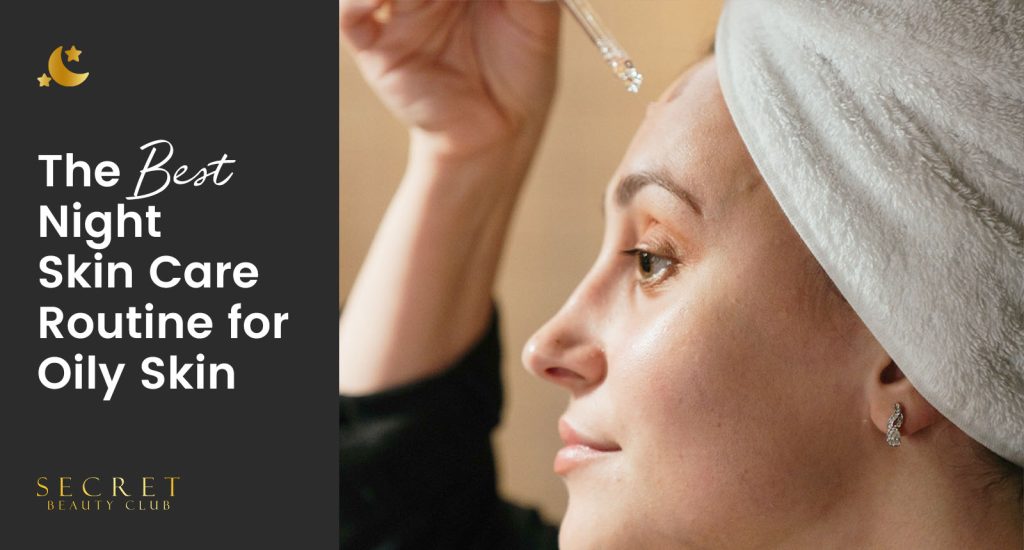- SHOP
PRODUCTS
SKIN TYPE
CONCERN
- DISCOVER SBC
- REWARDS
- CONNECT
- SKIN ADVICE
- CUSTOM FORMULATION
- BLOG
- SHOP
PRODUCTS
SKIN TYPE
CONCERN
- DISCOVER SBC
- REWARDS
- CONNECT
- SKIN ADVICE
- CUSTOM FORMULATION
- BLOG

The skin is the largest organ of the human body and is also one of the most complex. The skin has two main functions: to serve as a barrier to protect our body from the outside environment and to produce oil (sebum) that keeps us hydrated.
The leading cause of oily skin is excess sebum production from the sebaceous glands in the skin. These glands produce oil to keep our skin moisturized and to protect it from bacteria that could cause infections. Sebum production depends on factors like genetics, hormones, and the environment. People with oily skin have more sebum than people with dry skin. This makes their skin more prone to acne and other breakouts.
Oily skin is a type of skin that produces an excessive amount of oil. It is also known as seborrheic dermatitis or seborrhea. This condition has many causes, including hormones, medications, and genes.
If you have oily skin, there are some things that you can do to reduce its symptoms and prevent future outbreaks:
– Keep your face clean with a mild cleanser twice daily; avoid using harsh soaps.
– Wash your face twice a day with lukewarm water.
– Try avoiding the sun if possible, and don’t forget to wear sunscreen.
– Don’t eat greasy, fried foods or foods high in fat.
– Stay hydrated by drinking lots of water throughout the day.
Healthy skin has many benefits, such as a better mood and increased confidence.
It’s essential to take good care of your skin, especially if you have oily skin. Even if you don’t have oily skin, it’s still important to take care of your skin, but these tips will be geared towards people with oily skin specifically.
One of the best ways to maintain healthy, balanced skin with oily skin is by using a moisturizer.
Many people with oily skin think that moisturizers harm them because they’re heavy and make their faces feel greasy. This is not true at all! Moisturizers can help control the oil production on your face without making it feel heavy or greasy.
A moisturizer is essential to your skincare routine because it helps balance oil production and keeps the skin hydrated.
Moisturizing will also help reduce redness and irritation. A moisturizer is essential for oily skin because it will help balance out your natural oil production and prevents pores from becoming clogged.
Finding a routine that works with your skin type is essential, but there are some general rules you can follow to get the best results.
1) Cleanse your skin at night with a gentle cleanser and moisturize it afterward with a light lotion or oil-free moisturizer.
2) Skip the toner if you have oily skin, and use an exfoliator only once or twice a week.
3) Avoid using heavy makeup products because they can clog pores and lead to breakouts.
4) Remove makeup before bed with an oil-free remover or by washing with a mild soap.
5) Try to avoid the sun and exposure during the day because it can lead to hyperpigmentation.
6) Apply sunscreen before sun exposure and reapply it throughout the day.
7) Avoid aggressive exfoliation during treatment because it can increase inflammation.

Now you might ask, what exactly is the best night skincare routine? Well, the best night skincare routine for oily skin is designed to keep oil production at bay while nourishing and hydrating the surface of your skin. This means you will need a cleanser that removes all the excess oils from your face and an oil-free moisturizer.
These steps will help you reduce the effects of greasy skin, such as acne.
The first step of this routine is to cleanse your face with a cleanser that contains salicylic acid or glycolic acid. These are some of the most effective ingredients for combating acne but also reduce oil production on your skin.
Next, you will want to apply an oil-free moisturizer to your entire face. This will help lock in moisture and prevent excess oils from breaking through your makeup during the day.
There are many options for the best night skincare routine for oily skin. Some products, such as a mattifying lotion or a balm, are designed to absorb excess oil and keep your skin matte. Other products can help with acne-prone skin, such as a salicylic acid toner or an acne spot treatment.
In this article, we have discussed some of the best night skincare routines for oily skin. However, it is essential to note that the products used in your night routine will differ from those used in your daytime routine.
Nighttime is when our skin repairs itself and gets a chance to break from environmental stresses like pollution and UV rays. So it’s important not to over-cleanse or exfoliate at night, as this can do more harm than good.
Oily skin still requires hydration and deep nourishment, making it challenging to balance too much and too little oil production. Don’t neglect your skin just because it happens to produce more oil.
